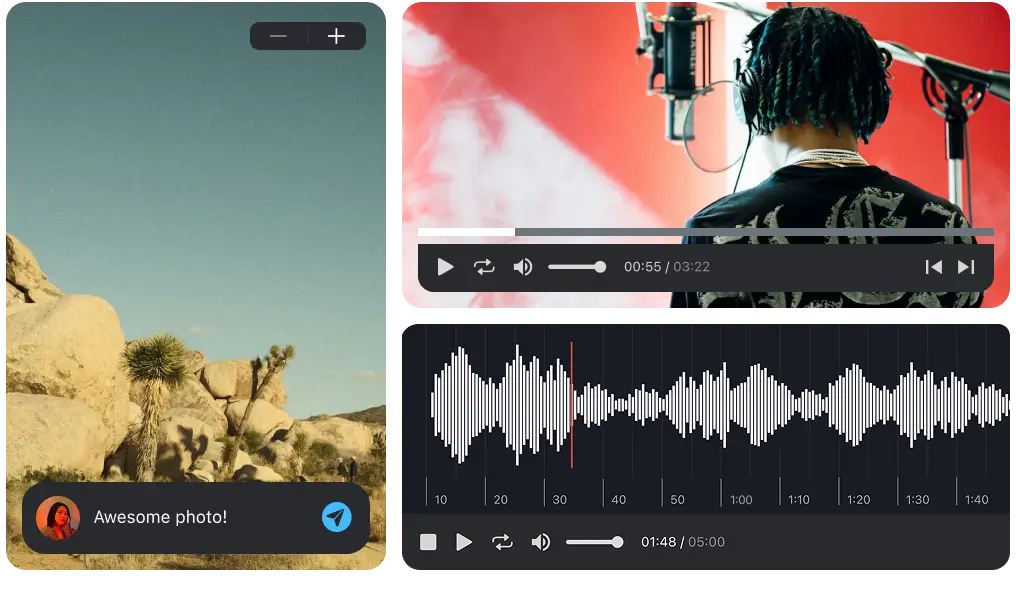Music production has come a long way. The image of a lone producer sprinkling his magic on an artist’s music – or a very small group of people directing an artist’s production – has completely collapsed, with the increasing emphasis on music collaboration in the music industry. Collaboration is both the present and future of the music industry. Here’s how music producers can make the most of working with other producers, songwriters and artists.
1. Enhanced creativity
Undoubtedly, one of the most obvious advantages of working with other producers, songwriters and artists is the ability to tap into each other’s influences and enhance creativity. When working with other music professionals, you’re pushed outside your comfort zone, allowing you to think outside the box and create beyond your usual limits.
Another way in which music collaboration can enhance creativity is the fact that it provides a space for brainstorming. When working with others, you can share your concepts, ideas, song themes, sounds and production techniques, leading to a more innovative product. By working towards a shared vision, you and your collaborators can create a distinctive, collaborative sound that plays to the collective’s strengths.
We like how Jon from Two Story Melody beautifully said: 'I want to understand how music is created, how arrangements are crafted to convey ideas and emotions, and how poetry in melody can make your heart ache with longing or leap with the need to belt out Taylor Swift and roll down the windows.' And honestly, there’s no better way to really get it than by jumping into it with fellow music creators.
2. Increased learning opportunities
Collaborative music production provides plenty of opportunities for artistic growth. When working with other people, you have the unique opportunity to learn new techniques, approaches and styles that you may not have used before. Besides artistic development, this can also lead to personal growth and professional development.
The studio offers a structured environment to learn these new production techniques. Seasoned producers can share their knowledge and studio experiences as well as music production do’s and don’ts with less experienced collaborators. Therefore, it provides a space for constructive feedback, which is extremely important if you want to grow as a producer.
3. Time efficiency
Dividing tasks between a group of talented people means that things are done faster than if one person tried to do everything. Working with people who specialize in a particular production technique means that you can focus on what you excel at and leave the other bits to the pros. This not only increases time efficiency – which is essential when hiring an expensive studio – but also improves the overall quality of the production.
Collaboration can also be beneficial if you work with artists who have tight schedules and limited studio time. By working with other producers that you professionally and personally get along with, you can collectively work around the artist’s schedule and ensure their project is done on time.
4. Networking opportunities
So far, we’ve already established that making connections is vital in an industry that’s all about networking. Through music collaboration, you have the opportunity to get to know other industry players on a professional and personal basis. By making a good impression on these professionals and keeping in touch with them, you invest in potential future collaborations, recommendations and introductions.
In addition, collaborative music production can also expose you to a whole new audience and pool of people within the music industry. If your name is right next to that of a more popular music producer in a song’s credits, there’s a higher chance that industry people will reach out to you to give you work.
5. Making the most of music production tools
Music collaboration tools such as Pibox make it easier than ever to work with producers based on the other side of the world. One big advantage of remote collaboration and music collaboration tools is that you’re not limited to your location and can choose collaborators based on their skills rather than their location. This has changed the game for both producers and artists, as they’re now able to work with the people they really want to work with without spending thousands of dollars on travel.
With cloud-based tools like Pibox, multiple producers can access and edit the same session, leave feedback, re-record material and work at different times. This is undoubtedly super cost-effective and streamlined, as even complex projects that involve dozens of different people can be managed without being in the same studio.
Easier, faster way to collaborate in real-time, collect feedback, manage reviews, share, and finish your projects effortlessly.










